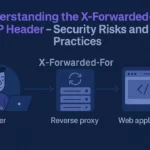Intro
Hi!
The last few days have been full of news and articles about the RegreSSHion vulnerability, which affects hundreds of thousands of OpenSSH services. In this newsletter, you can find an article summarizing the vulnerability along with recommended remedial actions.
If you’re working in Application Security field, I recommend taking the OWASP Top 10 Quiz to test your knowledge with 10 questions. You might also be interested in the article “Why and How You Should Rate-Limit Your API.” In this edition, I have also included OWASP Top Proactive Controls Project, which had its newest version published a couple of months ago but is still worth checking out.
As usual, you can also find technical exploitation articles. One of the most interesting is a research study by Doyensec introducing a new vulnerability class, CSPT2CSRF. If you’re using Llama, take a look at the article on the Ollama Remote Code Execution Vulnerability.
Materials
📃 How well do you know the OWASP Top 10?
OWASP Top 10 quiz. You can check your knowledge by answering 10 questions.
📃 How Grafana Security is using Dapr to improve vulnerability scanning
The article explains how Grafana Security used Dapr to enhance vulnerability scanning. By creating an event-driven architecture on AWS managed Kubernetes, they ensured reliable scanning, efficient retries, and seamless integration with Grafana for faster response times. This approach improved observability and scalability, leading to a more efficient and informed vulnerability scanning process.
📃 Security Engineering at Google: My Interview Study Notes
The repository contains learning tips and interview study notes covering various topics such as networking, web applications, cryptography and much more.
📃 Critical RCE Vulnerability in OpenSSH (CVE-2024-6387) – How to Detect and Mitigate
This article discusses the critical RegreSSHion vulnerability in OpenSSH, enabling remote code execution. Attackers exploit a signal handler race condition to gain root access. Vulnerable systems and exploitation methods are detailed. Mitigations include upgrading OpenSSH or setting LoginGraceTime to 0. Using Oligo ADR can detect abnormalities and potential attacks before they are officially identified, offering essential protection. Security patches are crucial to safeguard OpenSSH servers.
📃 Why and how you should rate-limit your API
The article presents the importance of rate limiting APIs to protect your system and users. It guides how rate limiting stabilizes infrastructure, controls costs, enhances user experience, and mitigates security threats. Various rate limiting policies are discussed, such as fixed window, sliding window, token bucket, and leaky bucket. Additionally, the article touches on implementing rate limiting at proxy and application levels and the potential drawbacks and complexities associated with rate limiting.
📃 OWASP Top Proactive Controls Project
The OWASP Top 10 Proactive Controls 2024 provides guidance for building secure software from the early stages of development. It emphasizes the need for a proactive approach to save time and resources in the long run. Developers, managers, and anyone involved in software development can benefit from these security techniques.
📃 Automated LLM Bugfinders
It discusses the use of Large Language Models (LLMs) in cybersecurity, focusing on automated bug finders. It compares different approaches, like Project Naptime and Google DeepMind, highlighting the importance of specialized tools and reasoning modules in enhancing LLM performance for vulnerability detection. The author presents a unique architecture, CATALYST AI, emphasizing the need for structured prompts and context control for efficient bug hunting.
📃 Exploiting Client-Side Path Traversal to Perform Cross-Site Request Forgery – Introducing CSPT2CSRF
This research presents the concept of Client Side Path Traversal (CSPT) for Cross Site Request Forgery (CSRF), showcasing how this vulnerability can be leveraged to perform CSRF attacks by exploiting weaknesses in client-side API endpoints. The article introduces a Burp extension to help in vulnerability detection. The research emphasizes the significance of addressing CSPT2CSRF to enhance application security.
📃 Probllama: Ollama Remote Code Execution Vulnerability (CVE-2024-37032)
This article discusses the Probllama Ollama Remote Code Execution Vulnerability (CVE 2024 37032) found by Wiz Research in the popular open source AI project Ollama. The vulnerability allows attackers to execute remote code on exposed instances, highlighting security risks in AI infrastructure. Mitigations include upgrading to version 0.1.34 or newer and not exposing Ollama to the internet without authentication.
⚠️ Vulnerabilities in CocoaPods Open the Door to Supply Chain Attacks Against Thousands of iOS and MacOS Applications
Security researchers found critical vulnerabilities in CocoaPods, leading to massive supply chain attacks on iOS and MacOS apps. Attackers could claim unowned pods, insert malware, and compromise countless devices.
⚠️ TeamViewer Security Breach
A short update about a recent cyberattack on TeamViewer’s internal corporate environment, emphasizing that no customer data or product systems were compromised.





